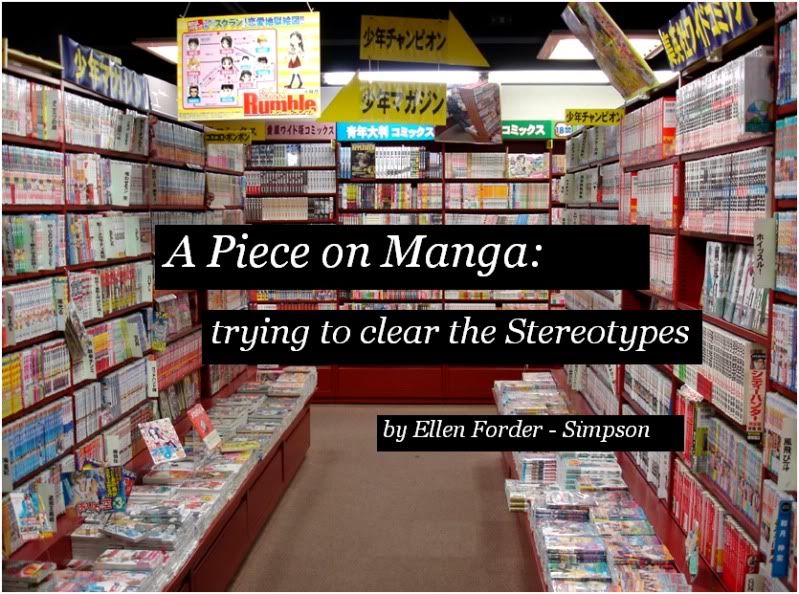
About three years ago, Ellen introduced me to anime, manga and in particular Hayao Miyazaki, & ever since I have been a great fan of all three, the latter in particular, and have come to immensely appreciate Japanese culture. So who else better than to write a piece on the stereotypes of manga?! Hopefully, this will be just the beginning of much more Japanese culture to come ^^
***
Well, for starters: as I type the word “manga” into my newly opened Microsoft Word document to write this piece, that squiggly red line I know all too well appears below and my computer benevolently suggests that the word I was looking for could have been “manage” or “mango” or “manta”. I guess it can be a rather foreign word to American office workers and those denied the pleasure of a Japanese-culture enthusiast for a friend.
[Can I just say that the following is the opinion of a Sydney school girl and is by NO means the only one out there! There will be people that think the total opposite of some of the points I may make]
A definition of manga? (surprise, surprise not a single dictionary in my house contains one)
Wikipedia says:
Manga (kanji: 漫画; hiragana: まんが; katakana: マンガ) consist of comics and print cartoons (sometimes also called komikku コミック), in the Japanese language and conforming to the style developed in Japan in the late 19th century.
Yourdictionary.com:
Manga: (noun) a Japanese genre consisting of comic books and graphic novels, typically black-and-white and featuring stylized characters with large, round eyes.
Dictionary.com:
Manga: (noun) a Japanese graphic novel, typically intended for adults, characterized by highly stylized art.
Sigh* alas all these definitions highlight different misconceptions/ 'rant-worthy' topics in the world of manga lovers.
Wikipedia: “consists of COMICS and print CARTOONS”
There’s not that much of a problem with this definition as a whole…. But this line really touches on a pet-hate of mine. The words 'comics' and 'cartoons' are just so Americanised/Western! Technically, yes, manga consists of usually un-coloured, ink drawings and these form the foundations for the production of moving anime. But it wouldn’t kill someone to swap the word 'comic' for 'manga' and 'cartoon' for 'anime'. They’ve even bothered to put the kanji, hiragana and katakana in there --- so why not those two words.
It just makes your (well, my) blood boil, when I say “I read manga and watch anime” to a blank-faced person for whom I’m forced to self-translate this to: “I read comics and watch cartoons”. It’s not really the person’s fault – I guess it’s more the result of lack of exposure to the terms. Something I shall endeavor to fix :D
manga:
Yourdictionary.com: “stylized characters with large, round eyes”
Well, yes and no. This is one of the huge manga stereotypes. If I’m lucky enough to come across a person who does not go blank-faced at the word 'manga'; usually the next thing they say is “it’s that Asian stuff with the big eyes, right?” to which I am forced to bite my tongue and say “yes”. While it’s true that manga tends to be much more stylised than Western comics, not ALL manga possess characters with eyes that defy anatomy. There are many manga genres and each has its own characteristic style. Though personally, I admire those who can produce stylised manga drawings, especially the large eyes. I’ve tried. And it’s HARD – its not like you can just go check out a human model to check the perspective or proportions of your drawing. You’re dealing with a picture that isn’t designed to be overly realistic, yet you’re also trying to make it realistic to the scene in which it may be placed.
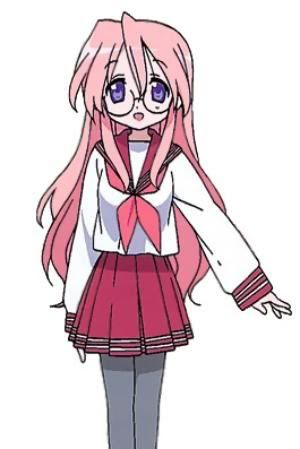
So, different genres of manga have their own sort of “signature” style (although each artist also has their own individual take on this) --- and a lot of the time this centres around those awesome eyes!
Moe characters (although not really a manga “genre”) are stereotyped character-roles seen in some manga. These characters are probably the cause of the “big-eye” misconception, as this is one of their characteristics – usually accentuated by glasses.
Moe is actually a pretty complicated term used to describe the fan of a particular anime/manga character trait… so say a person liked characters with glasses, that person would actually be a moe glasses --- it makes more sense in Japanese. But the term moe has sort of come to be a general term for anime/manga characters that have a certain 'cuteness' (although some critical people just see these characters as air-heads)
[I knew this would become a rant]
Dictionary.com: “typically intended for adults”
So. Not. True. I REALLY hate this stereotype. It’s got to be the bane of most-anime/manga-fans’ existence. This is the stereotype that causes my uncle to frown the minute he walks through my front door and sees the anime/manga/figma-shelf my sister and I have created (figma = another rant). It’s true that there is a lot of crazy anime/manga stuff out there for strange old people…. But I’d prefer it if you could all keep it in perspective…
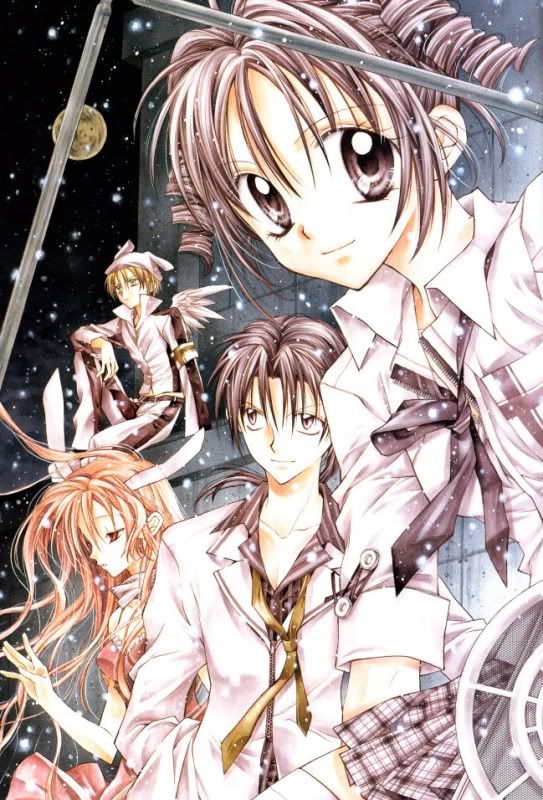
The Western world has R-18+
Manga/anime have it too
The Western world has graphic violent films and books
Manga/anime have it too
The West has romance films
Manga/anime have a romance genre
The West has supernatural/horror films
Manga/anime have supernatural/horror genres
The West has children’s shows/films
Manga/anime also have children’s genres
And the list goes on!
I really hope some of you can look past the manga stereotypes and maybe enjoy a slice of Japanese culture. I was actually going to write something on 'the basics of manga' but as you can see I’ve got snagged on the stereotype issue.
***
stay tuned for part two
image sources title; 1; 2; 3; 4
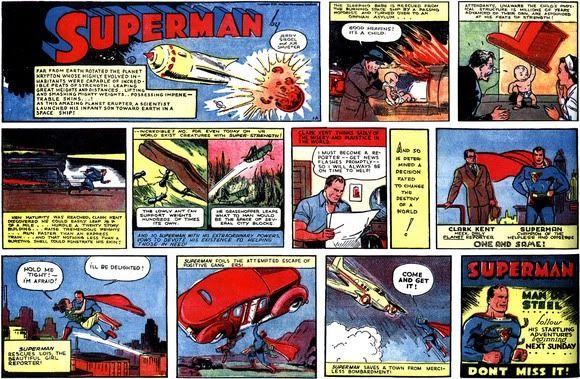
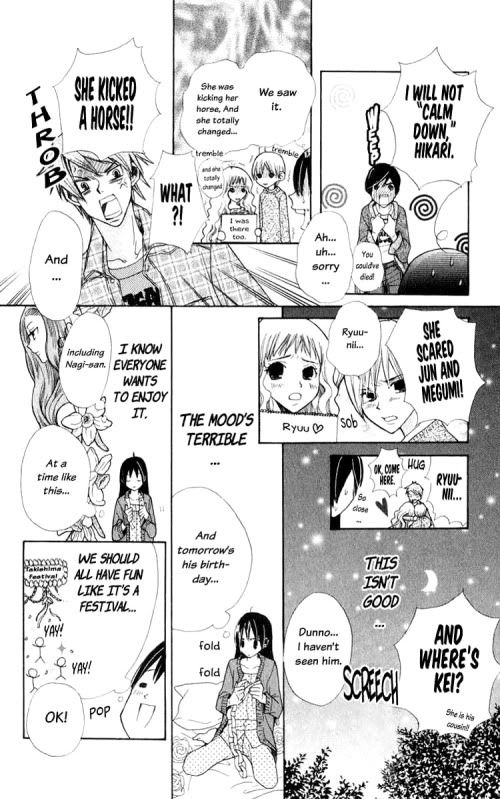
intereting input:) personally i love miyazaki's movies (totoro!!!!!) and read whole "death note" (which lead me into inability of reading from left to right for a moment) but that's all - so i'm waiting for your next posts:)
ReplyDeletehahaha nice job Ellen!
ReplyDeleteWe're always having lengthy conversations about all this stuff. Some people will never understand Japanese culture, which is quite sad because they're missing out! :)